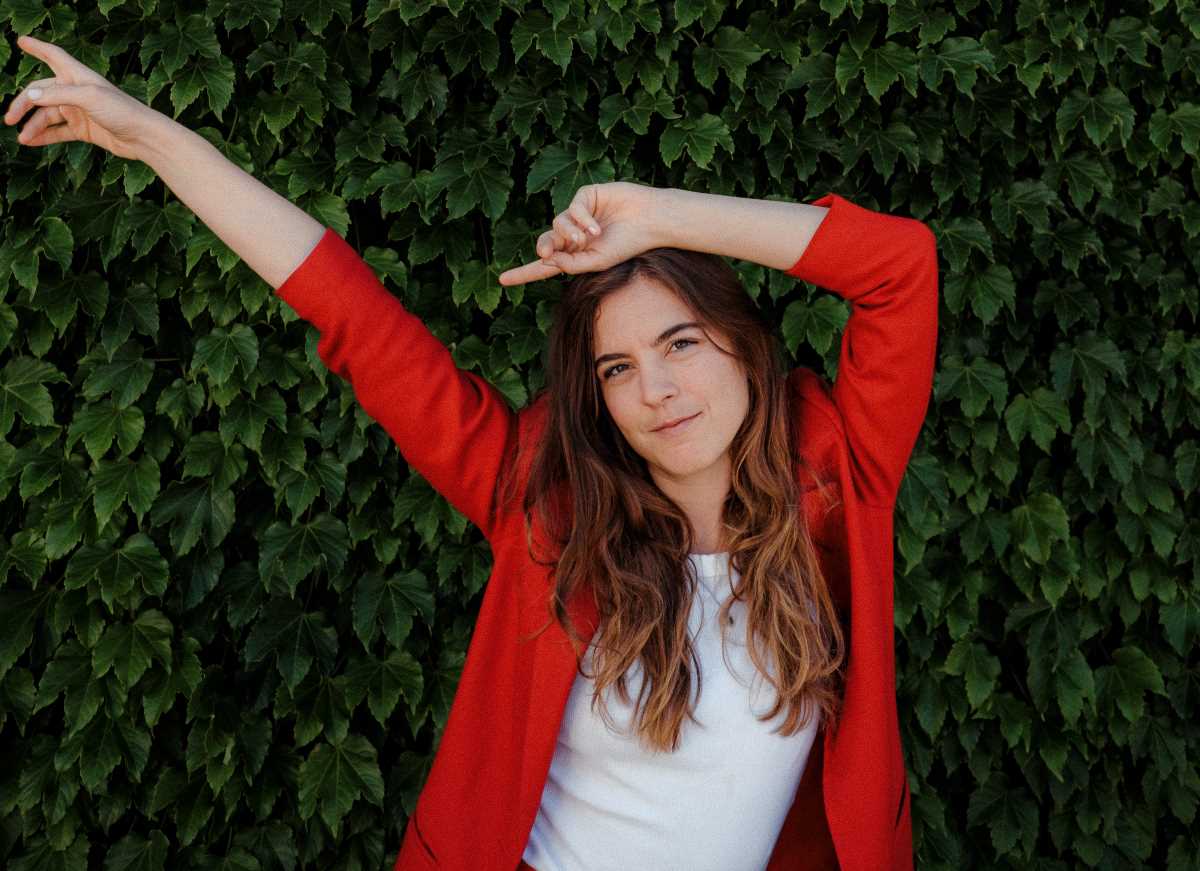
Photo credit: Ben Collins
Tell us about your tour vehicle.
Honda Fit about to hit 100k miles – she’s my precious baby.
How do you eat cheaply and/or healthy while on tour?
Coolers.
I learned this from Session Americana while on the road in Europe this spring for 5 weeks: “see a salad, eat a salad.” We clocked 7000 miles that tour and I learned 7000 miles worth of road wisdom.
How many strings do you break in a typical year? How much does it cost to replace them?
Enough to be open to a string endorsement! Don’t break as often as I wear them out and then have to come up with more stage banter as I tune, which nobody wants.
Where do you rehearse?
I saw my guy Jonah Tolchin’s response on this one and mine’s the same: what’s rehearsal??
Although the album cover for the coming record, Til It’s Gone, features a photo of me at my apartment in Burlington, at that table by the window where I wrote a bunch of these songs and played lots of guitar over the last couple years.
What was the title and a sample lyric from the first song that you wrote?
I co-wrote this song with my friend Catherine Reilly in 5th grade: “every cloud has a silver lining, behind every cloud the sun is shining” – apparently we were very optimistic young girls.
First song I wrote on my own was in college, and it’s on my first album Slow Burn, called “That Way:”
“So you can kiss me… on my cheek, or you can take me, take me, take me… out to eat.” Trying to be clever and suggestive enough to siren some man my way. Embarrassingly enough, I think a lot of my early songwriting had that intention. Now I write songs to scare them away.
Describe your first gig.
My Uncle Mike put together a band called “The Youngins” with my brother and I when he was 11 and I was 7. I played drums and took lead on the song “Wild Thing.” We played 2 gigs in Cambridge, MA at the Kirkland Cafe and Green Street Grill. It was short lived glory, but my cool after-school teachers came, which rocked, and I was hooked on that rock n roll lifestyle ever since. My uncle is a true legend, who started it all for me. Here is his blog.
What was your last day job? What was your favorite day job?
My last full time job was as an Outreach Specialist at the New England Center and Home for Veterans, coordinating emergency housing services for Veterans and their families. I loved that work, though it was very difficult. Now I work as substitute shelter staff at COTS in Burlington, helping out at the day center. I really enjoy feeling part of communities like these and being of service. Everyone on this planet deserves dignity and care and it makes me proud and grateful to be able to provide that.
How has your music-related income changed over the past 5-10 years? What do you expect it to look like 5-10 years from now?
I hope it… grows. If it weren’t for my very cheap apartment, part-time work teaching voice lessons and at COTS I wouldn’t be able to make ends meet. I think a lot of people who are able to make this lifestyle work long term come from money or have outside support, which is sad because that affects whose stories get told and who gets to express themselves for a living, without having to divide their energies. It’s a great privilege to have a career in the arts and I don’t take it lightly.
While for many years I approached my music career like a Slow Burn (my first record) with this project I’m going all in, pressing the gas and going for this music life as long as I can Til It’s Gone. (See what I did there?)
What one thing do you know now that you had wished you knew when you started your career in music?
In some ways, I wish I had actually known that a career in music was possible earlier in life and that you don’t need to achieve super-stardom to make a living, however humble it may be. There is so much I am constantly learning on how to build a sustainable career and be a good band leader. My priority has always been to be the best musician I can be, and if I keep that as number one, I need to have faith that it will come back to me / “pay off” somehow.
